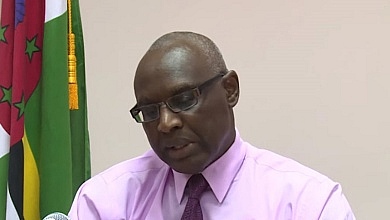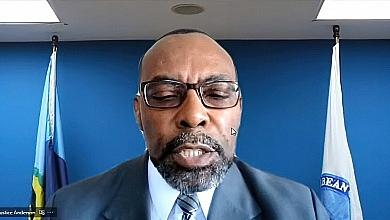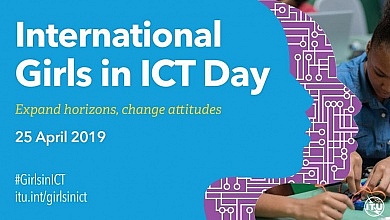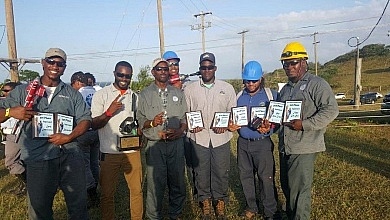Hugh Wooding Law School are winners of the 11th CCJ Law Moot
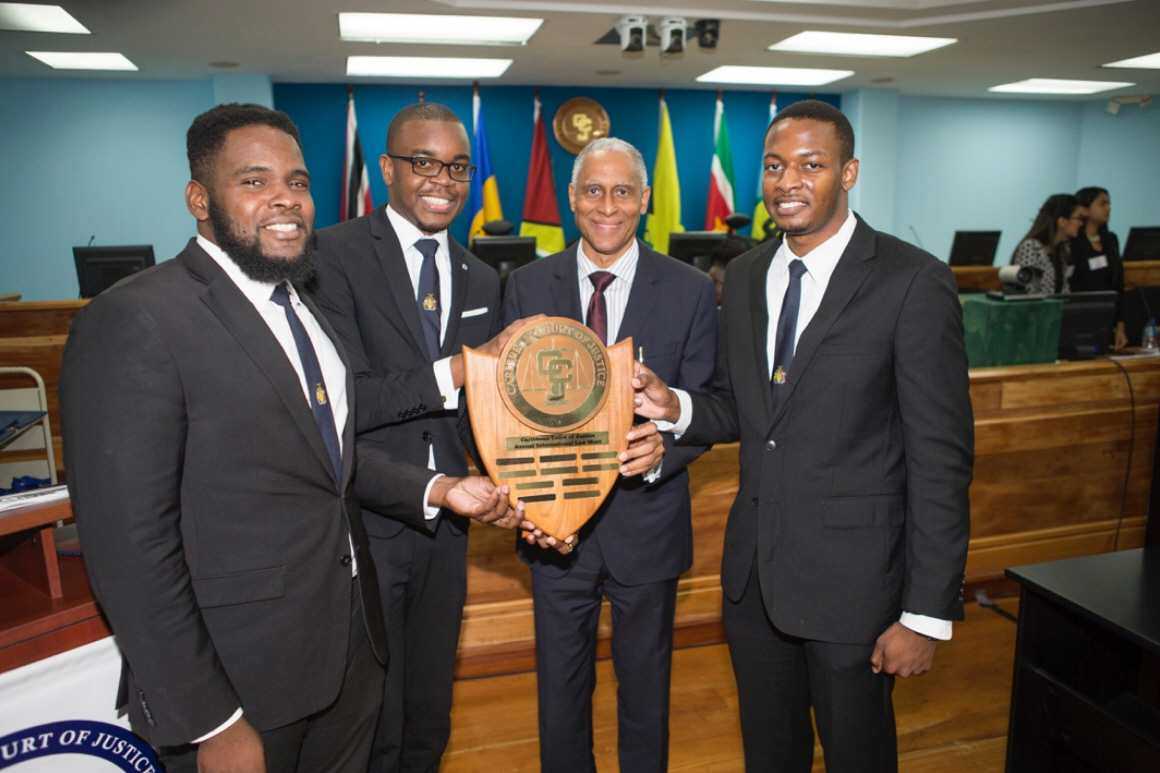
At a ceremony held at the Caribbean Court of Justice (CCJ), the Hugh Wooding Law School bested eight other schools to take home the CCJ Challenge Shield as winners of the 11th Annual CCJ International Law Moot. The University of Guyana was the runner-up and took home the prize for Best Academic Institution.
The Moot was held over two days, Thursday, March 21 and Friday, 22 March 2019. The CCJ judges who comprised the bench for the Moot were the Honourable Messrs. Justice David Hayton, Jacob Wit and Winston Anderson.
It was a year of firsts and lasts – this is the first Law Moot since the President of the CCJ, the Hon. Adrian Saunders took the helm of the organisation and it was noted by the President that it is the last Moot for Mr. Justice David Hayton, who has chaired all annual Moots.
During the President’s speech before the awards ceremony, he paid tribute to his colleague, “I cannot conclude my remarks without extending to the Honourable Mr. Justice David Hayton, my appreciation for the enlightened leadership that he has brought to the organisation of this Annual International Law Moot hosted by the CCJ. He has been associated with the Moot from its inception and, as he retires later this year, the Court expresses its deepest thanks for his unstinting service”.
The Hon. Justice Wit also pointed out during judgment delivery, that this was the first time that the moot question involved a dispute between two states.
The President also lauded the mooters, who are students from regional law schools and faculties, for the quality of their presentations.
“Over the last two days, these law students have argued their cases with skill and passion before the highest judges of the region. I was only able to listen in to one or two of the presentations but I was very impressed with the standard of advocacy I saw. And what I saw must have been the norm because Mr. Justice Burgess went out of his way to inform me how awed he was.”
The Hon. Mr. Justice Hayton, after receiving a token of appreciation, said “Mooting, in general, brings out the best, because you have really got to be exceptionally thorough. It’s not like ordinary supervision or tutorials where you can hang your head or keep quiet. You really have to be there, ready to answer any questions put to you, and particularly in an arena like this, can be terrifying.” He also praised the students for their presentations, “listening to the Moots over the years, the mooters have become better and better, more knowledgeable and more sophisticated and I think that has reached its height today.” He also announced that the Hon. Mr. Justice Andrew Burgess will be assuming leadership of the Moot.
Each year, the Moot aims to give students a grounding in the Court’s Original Jurisdiction, where the CCJ is the guardian of the Revised Treaty of Chaguaramas. This year’s fictional question centred on a dispute where Suriname was alleging breaches of the Treaty caused by the treatment of a couple in a manner amounting to discrimination on the grounds of nationality. The event also helps students to develop practical courtroom and advocacy skills.
The Moot featured presentations from: Hugh Wooding Law School (Trinidad & Tobago), Norman Manley Law School (Jamaica), Faculty of Law of the Anton de Kom University of Suriname; Faculty of Law of the University of the Bahamas; Faculty of Law of the University of Guyana, Faculty of Law of the University of Technology, Jamaica), Faculty of Law of the University of the West Indies – Cave Hill, Faculty of Law of the University of the West Indies – Mona and the Faculty of Law of the University of the West Indies – St Augustine.
This article is copyright © 2019 DOM767





